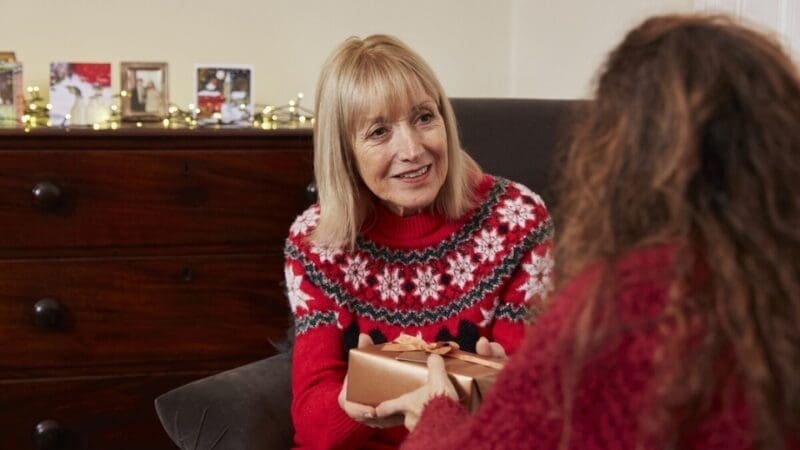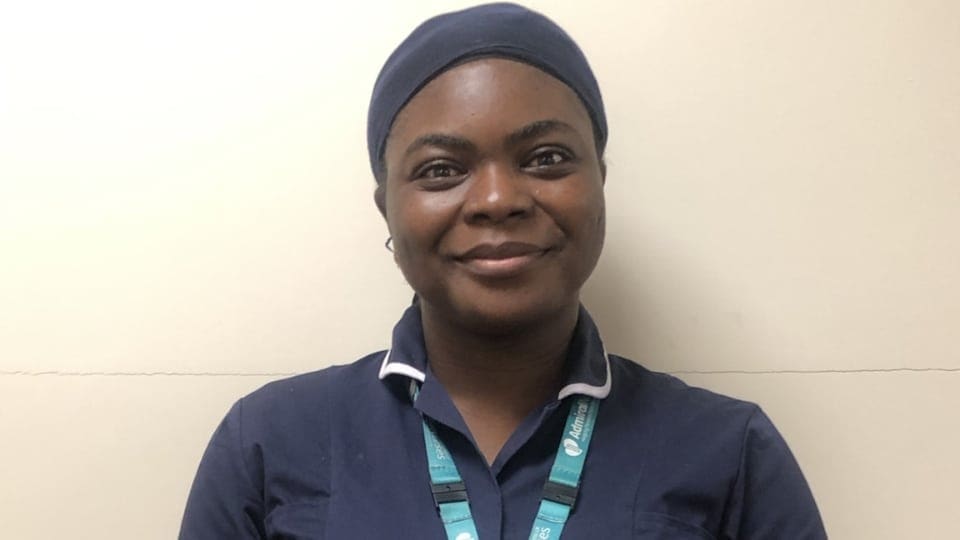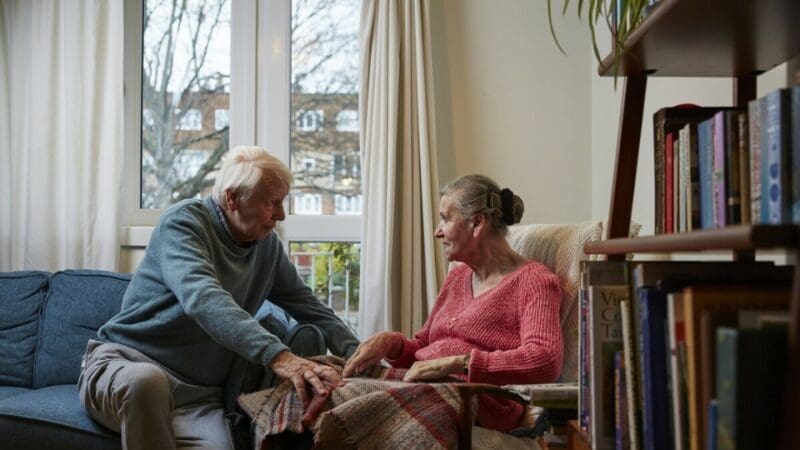
Christmas gifts for people with dementia
Our dementia specialist Admiral Nurses have put together suggestions for appropriate Christmas gifts for people with dementia

Diverse Communities Admiral Nurse Safia Seini, reflects on how she supports families from diverse communities and what Black History Month means to her.
I am from Ghana and moved to the UK in 2019. I remember my first day on the ward as an internationally recruited nurse. I was baffled as to why there were so many people living with dementia. In Ghana, as is the case in many African, Asian, and Caribbean countries, there isn’t much awareness or education around dementia. I had to educate myself about dementia and find creative ways to care for people living with the condition.
I first heard about Admiral Nursing at a ‘Dementia Champions’ training day. From that day, I knew I wanted to be an Admiral Nurse.
My current role is Diverse Communities Admiral Nurse. My job is focused on supporting people living with dementia and their carers from diverse and under-served communities.
I provide practical, emotional and psychological support to families living with dementia in a culturally sensitive manner. I signpost to support services and help families to navigate these. I also collaborate with professionals from other health and social care organisations to increase dementia awareness.
I’ve supported many black families in my role. I recently supported a person living with dementia who migrated to the UK from Ghana in the 1970s. He had been recently diagnosed, but already had significant cognitive deterioration. He had reverted to his early memories of growing up in a Ghanaian village, spoke only his local dialect and longed for traditional foods. He would refuse to eat because he didn’t like the food that was served. He kept asking why he was in this strange land and not in his village, farming.
His family were born in the UK, so it was difficult for them to understand and meet his new needs. Family back home in Ghana also could not understand his needs. Due to low awareness of dementia in Ghana, they believed it was a spiritual issue.
As I am Ghanaian, I was able to speak to the gentleman in his local dialect. He broke into laughter out of relief that someone understood him. I was able to recognise the foods he wanted because I ate them myself and passed this information onto his family. I taught his family about Ghanaian foods, treats, games and traditions, and sometimes we shared a laugh over a new thing their dad had said. I was also able to speak to his family in Ghana on the phone to help educate them about dementia.
I was able to personalise his care and support him and his family. That’s why I’m passionate about creating culturally sensitive approaches when supporting people from minority groups.
Historically, talking about mental health issues has been taboo in most black communities. This results in limited opportunities to educate people on dementia, allowing myths and misconceptions to thrive. It is often more difficult for these families to identify signs and symptoms of dementia which means people from under-served communities are less likely to seek support services early. Often, by the time carers get in touch with health and social care services there is significant deterioration in both the physical and mental health of the person living with dementia.
Research also indicates that black people have a higher risk of developing vascular dementia due to factors such as hypertension, which is more common in people of black heritage, and of developing young onset dementia (where symptoms start before the age of 65). In addition, black people are less likely to get involved with dementia research, adding another layer of difficulty to an already complicated challenge.
In supporting black families, as with all families, there is the need to create rapport, build trust through open and honest conversations and understand the uniqueness of each family unit. This ensures their care is personalised to their unique needs. It is important to make families feel seen, heard, and understood, making sure that their unmet needs are addressed.
Black History Month is about celebrating the achievements and contributions of black people around the world. To me, it is about reflecting on how best I can contribute to dementia care and improve the lives of people who are living with dementia. There is the need to increase awareness of dementia in ways that are tailored to under-served communities.

Our dementia specialist Admiral Nurses have put together suggestions for appropriate Christmas gifts for people with dementia

Christmas activity ideas for a person with dementia for a fun and engaging time for all the family

Consultant Admiral Nurse for Frailty, Kerry Lyons, answers your questions about delirium, falls and incontinence.